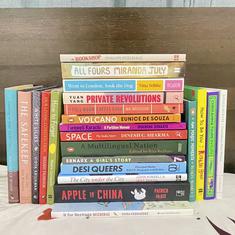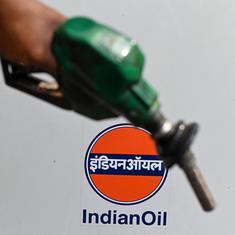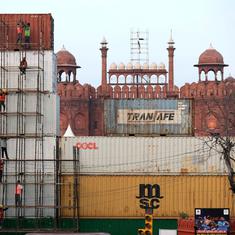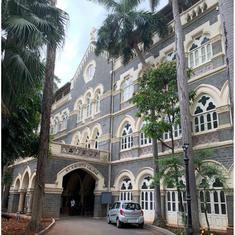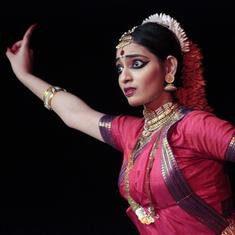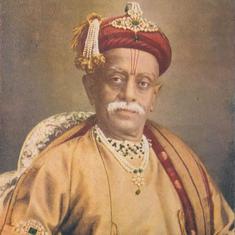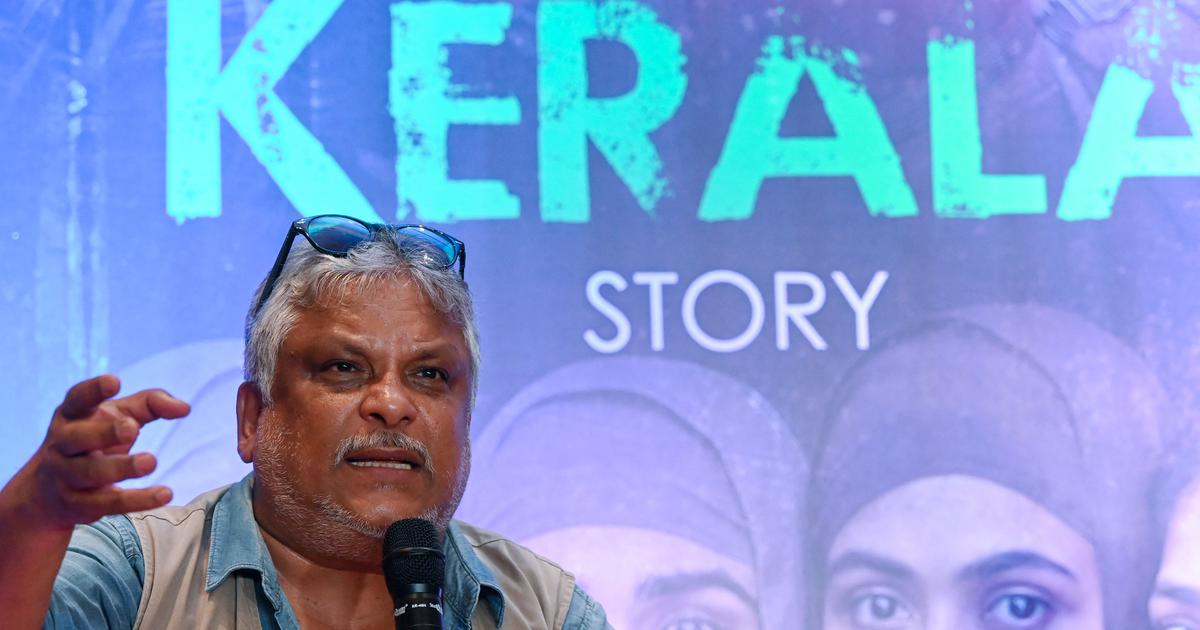Nobody is ever entirely satisfied with the National Film Awards. Even if the awards are seen to be fair, deservingly granted and representative of the staggering variety in India’s various language industries, there is always somebody or the other who feels slighted.
This year too, the awards have stoked controversy, mainly over the decision to name Sudipto Sen as the best director for his propagandist screed The Kerala Story. The movie’s cinematographer, Prasantanu Mohapatra, also won an award.
Jury chairperson Ashutosh Gowariker defended picking The Kerala Story over other candidates. He told NDTV that The Kerala Story’s overblown depiction of Muslim men entrapping Hindu and Christian women in relationships in order to convert them to Islam had “stark and realistic” camerawork.
About the film’s controversial peddling of this “love jihad” conspiracy theory, Gowariker told NDTV, “It’s a difficult topic and to convey that with the kind of clarity that as a jury we felt the need to applaud it.”
In 2008, Gowariker’s inter-faith romance Jodhaa Akbar in 2008 had incurred the wrath of Rajput groups.
Entirely shut out from the awards was Blessy’s acclaimed Malayalam film Aadujeevitham (The Goat Life). Adapted from Binyamin’s novel of the same name, Aadujeevitham stars Prithviraj Sukumaran as a labourer from Kerala who manages to escape enslavement in Saudi Arabia and make it back home.
Reacting to statements by Gowariker that Aadujeevitham came a cropper because it had “technical shortcomings”, Blessy claimed at a recent film event in Thiruvananthapuram that the jury chairperson had in a private conversation actually lauded the movie.
“He had praised the film highly and even compared it to Lawrence of Arabia, saying he hadn’t seen the desert portrayed so beautifully since then,” Blessy asserted.
Urvashi, the reputed Malayalam actor who shared the supporting actress award for Christo Tomy’s Ullozhukku with Janki Bodiwala for the horror film Vash, was upset about not being nominated in the best actress category. Ullozhukku was named the best film in Malayalam.
Urvashi also claimed that her Aadujeevitham co-star Sukumaran was paying the price for offending the powers-that-be with L2: Empuraan (2025), which he directed. The movie is critical of the role played by Hindutva groups in the Gujarat riots in 2002. L2: Empuraan was re-released after cutting out certain scenes, including a reference to the year 2002 and visuals of the anti-Muslim violence.
Will L2: Empuraan win a National Film Award when its time comes? It’s anybody’s guess. Arbitrariness has been a hallmark of the awards, even though, on paper, they are free from meddling and partiality.
The awards were instituted in 1954. Over the years, categories were added to acknowledge the contributions of the many departments that come together to make a film possible.
Since 2021, the National Film Development Corporation, which comes under the Union Ministry of Information and Broadcasting, has administered the functioning of the awards and picked the juries. Films have to be submitted by their producers to be eligible for consideration. To forestall the possibility of regionalism, the juries are composed of filmmakers, actors, technicians and critics from across the country.
But over the years, there have been allegations of a preference for Bollywood, behind-the-scenes lobbying and pressure to pick films that reflect the ruling party’s ideology. This has been achieved, the allegations maintain, by picking plaint jurors.
Sometimes, jurors don’t even need to be nudged in a particular direction. They read the winds and act accordingly. This is especially true of the Modi Age, where cinema has been weaponised, critical narratives are censored and pro-regime films are rewarded with tax breaks. In such a situation, the National Film Awards reflect the larger culture wars over what is acceptable.
As a consequence, the win for The Kerala Story is unsurprising. It’s a small mercy that the film’s lead actress, Adah Sharma, didn’t win the Best Actress award (it went to Rani Mukerji for Mrs. Chatterjee Vs. Norway).
Binyamin, the author of The Goat Life, summed up the debate when he sarcastically told 24 News, “What more can we expect from them in this era? The jury chairman, too, has to live in India, does he not?”
Despite its problems, the National Film Awards are coveted by filmmakers across language industries. The honour could be a starting point of a journey or the culmination of a series of achievements.
For directors who are working beyond the main commercial centres like Mumbai and Hyderabad, a National Film Award brings much-needed awareness about their work. Often, the first time most Indians hear of a film made in, say, Tulu or Garo, is when it wins a National Film Award.
Small-budget, offbeat productions that are looking for wider distribution can get a massive boost with a National Film Award – as was the case with Chaitanya Tamhane’s Court in 2015. Tamhane’s Kafkaesque examination of the trial of a protest singer on an absurd charge was named the Best Feature Film weeks before its theatrical release – a development that increased interest in the arthouse drama.
For movies that have already tasted box-office success, a National Film Award is like dessert at the end of a fulfilling meal. The award is the ultimate seal of governmental approval for populist entertainers, the imprimatur of acceptance from the power centre.
Technicians benefit the most from National Film Awards, their hard work given the due it deserves.
It’s impossible to please everybody. Despite this, the National Film Awards are expected to be fair. The notion of inclusivity is right there in the use of the word “national”. Rather than giving away top prizes to Bollywood entertainers or bigoted narratives that are contrary to the values enshrined in the Constitution, the awards are supposed to spread the honours evenly.
But propagandist cinema has muddled the very meaning of “meaningful cinema”. An already-compromised selection process has been further undermined by the imperative to legitimise political kitsch that polarises rather than unites. In India’s film world these days, toeing the line, rather than sticking out the neck, pays rich dividends, one of which is a National Film Award.
Here is a summary of last week’s top stories.
No free and fair elections? Congress leader Rahul Gandhi said that party workers had combed through the electoral rolls of the Mahadevapura Assembly constituency in central Bengaluru and allegedly found discrepancies in more than one lakh names.
This, he claimed, was evidence that the Election Commission had colluded with the Bharatiya Janata Party in “destroying the election system”.
Gandhi alleged that there were 11,965 duplicate voters on the rolls of the constituency, 40,009 electors with fake or invalid addresses, 10,454 “bulk voters” registered at the same address, 4,132 with invalid photographs and 33,692 in whose cases voter registration forms had been misused.
The BJP had won the Bangalore Central Lok Sabha constituency in the general election last year.
The Chief Electoral Officer of Karnataka asked Gandhi to send the names of electors who had been allegedly wrongly included or excluded “so that necessary proceedings can be initiated”. The official asked Gandhi to sign an oath for each such name, adding that making false declarations was an offence.
On Friday, Gandhi urged his party’s government in Karnataka to investigate the alleged voter fraud in Mahadevapura.
Natural disaster. At least five persons died and more than 50 were missing in Uttarakhand’s Uttarkashi district, which was hit by flash floods and landslides on Tuesday. More than 566 persons were rescued.
The Dharali and Harsil areas were among the worst affected. Key arterial roads leading to Dharali, a major stopover en route to Gangotri town, remained blocked by landslides.
Strategic ties strained. A day after United States President Donald Trump doubled tariffs imposed on Indian goods to 50% from 25%, citing New Delhi’s purchase of oil and military equipment from Russia, Prime Minister Narendra Modi said on Thursday that India will not compromise on the interest of its farmers, livestock keepers and fisherfolk.
“I know that I will have to personally pay a heavy price for this,” Modi said. “But I am ready for it.”
The comment was made with a direct reference to the tariffs announced by Washington.
On Wednesday, New Delhi said that it was “extremely unfortunate” that the US had chosen to impose additional tariffs on India “for actions that several other countries are also taking in their own national interest”.
Trump has said that trade negotiations with India will not resume until a dispute about tariffs is resolved.
Anuradha Chenoy writes: The message from Trump’s tirade against India
Also on Scroll this week
- Why Mumbai ban on feeding pigeons has pitted neighbours against each other
- Behind wave of Assam evictions, a hungry river, and a land policy loaded against Miya Muslims
- How social media broke reservations for Brahmin men in reciting Hindu scriptures
- Why the number of bus users in Mumbai and Delhi has plummeted
- Watch: 19 years after Mumbai train blasts, investigation leaves a long trail of injustice
- How separate lifts in Mumbai highrises sustain caste prejudice in the city
- In Delhi’s prisons, the mental health of inmates is a footnote
- ICJ ruling on climate crisis is a powerful boost for justice – but may not be enough
- ‘Mayasabha’ review: A heavily spiced fictional history of Andhra Pradesh politics
- ‘Weapons’ review: Ample chills in a demonic tale of missing children
Follow the Scroll channel on WhatsApp for a curated selection of the news that matters throughout the day, and a round-up of major developments in India and around the world every evening. What you won’t get: spam.
And, if you haven’t already, sign up for our Daily Brief newsletter.
